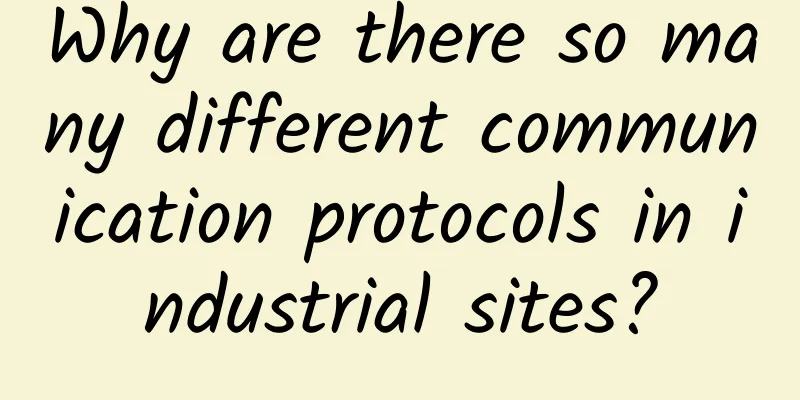New challenges for the telecommunications industry in 2017: Progress in 5G and fiber deployment

|
Driven by the growth of the digital economy and changing consumer demands, the telecommunications industry is facing unprecedented demand for network services. The forecast growth in new markets, such as Internet of Things (IoT) applications, is exciting. In 2016, mobile data traffic in the UK alone increased by 64%, while residential and small business fixed broadband traffic increased by 40%. Investment in technology is a key factor in the telecoms industry’s ability to keep pace with the growth of the digital economy and changes in consumer demand. As high-speed broadband is increasingly seen as a basic human right, there are calls for the telecoms industry to increase investment in networks to improve fiber connectivity and 4G coverage. In addition, technology is also a key factor driving competition and innovation. Technological development has enabled new entrants to provide VoIP and cloud-based communication services. But at the same time, the telecommunications industry still faces many challenges. The economics of running networks remains complex, and increasing traffic does not necessarily mean increased profits. The normal operation of the market still requires effective supervision to promote competition and protect consumer rights. However, the market must be allowed to find a way to encourage commercial investment in new networks. A key challenge for the telecoms industry in the coming year will be the balanced intervention of regulators as the EU implements regulatory reforms. Against this backdrop, we expect five key trends to emerge in 2017, including: The Internet of Things is growing rapidly The market for connected products is still in its early stages of development, but is expected to grow rapidly as applications become more prevalent, especially in the automotive, healthcare, energy and mining sectors. Research firm Gartner predicts that the total number of connected devices will reach 25 billion in 2020, twice the total number of mobile devices. Regulatory reform Europe's regulatory regime is based on a Common European Framework (last updated nine years ago). During this period, the telecommunications industry has undergone significant changes in terms of consumer demand, communication technology and the competitive landscape. The EU is reviewing the EU Telecommunications Directive as part of its Digital Single Market Review and recently submitted a summary of its reform proposals. At the same time, Ofcom is also conducting a strategic review of communications. The goal of both reviews is to recalibrate the regulatory system to encourage investment in high-speed networks. Proposals include a new universal service system that provides guaranteed broadband network access at 400Mbps, and a softer approach to regulating providers that use networks that operate on a pure wholesale basis or are co-funded by other operator investors. A focus for Ofcom is the thorny issue of how to ensure the proper functioning of BT’s wholesale arm, Openreach, which runs the networks that other providers rely on. Some operators have been calling for BT to be broken up, and while that has not been ruled out, Ofcom would prefer greater functional independence by creating a wholesale subsidiary with an independent board. Since there is no chance that BT will agree to such a structure, Ofcom has referred the issue to the EU to force BT to implement it. It remains to be seen whether this will force BT back to the negotiating table or we will still have to fight a long battle on this issue. 5G and fiber deployments gain momentum While the UK is unlikely to launch 5G services before 2020, some key steps in the development of 5G services will be initiated next year. The UK's spectrum auction in 2017 will include 3.4GHz radio waves that can be used for 5G services. In the Chancellor’s Autumn Statement, the Government pledged to invest over £1 billion over the next four years in the deployment of new fibre networks and 5G. This will be achieved by: A new Digital Infrastructure Investment Fund of £400m (to be matched by private investment) to invest in new fibre networks; A 100% business rates reduction for new full-fibre infrastructure over five years; Funding local areas to support investment in the national fibre network to meet the needs of businesses and the public sector. Consultation with industry on the delivery approach is expected shortly; and Funding a coordinated programme of integrated fibre and 5G trials. Cross-market mergers and acquisitions The EU's decision to block the merger of O2 UK and 3 UK makes it clear that competition authorities want to maintain adequate domestic competition between mobile network operators. However, "cross-market" mergers (involving mergers between operators and businesses in different industries or countries) will be more popular, and the telecoms industry will no doubt be watching the outcome of the US regulatory review of the AT&T and Time Warner deal closely. Diversification of products and services Operators will continue to develop new service lines to improve their profitability. Many operators have already started to provide content services, and we expect them to further expand into areas such as cloud services, financial services and content provision. |
<<: Riverbed Launches Two New Visibility Solutions to Enable 360-degree View of Enterprise IT
>>: Bubble or opportunity? 2016 Enterprise IT Market Innovative Technology Application Survey Report
Recommend
Two ways 5G will change cloud computing
5G is coming, and most people are looking for the...
Connectivity trends: All roads lead to Wi-Fi in 2023 and beyond, says Wi-Fi Alliance
Despite turbulent times, Wi-Fi has had a stellar ...
The best solution is to merge telecom operators into two companies, and the next five years will be the best period
In recent years, the competition in the communica...
Is your home network not powerful enough? Let's see if you have fallen into these "pitfalls"!
Everyone may be familiar with the Internet. Both ...
The existing network is difficult to achieve great success, will 5G be the savior of the Internet of Things?
5G is the fifth generation of mobile cellular tec...
FantomNetworks: $39.5/month-E3 1271v3/32GB/512G SSD+2T HDD/10TB/Los Angeles data center
The tribe shared news about FantomNetworks twice ...
Three major 5G concepts and four key technologies
The situation is tense and there is little conten...
80VPS: Hong Kong/Japan/Korea/USA 1-16C cluster server starting from 800 yuan/month
A friend talked about cluster servers. I recently...
Woman connected to WiFi and received a huge bill: Some WiFi is actually charged
Nowadays, surfing the Internet with mobile termin...
The technical support behind the 11.11 promotion: in-depth analysis and practical cases of SLA and SLO
background It's the 11.11 promotion day again...
SRv6 opens a new IP era
We know that IP data transmission in current bear...
Building a native cloud to truly realize the benefits of NFV
The goal of network function virtualization in th...
Data Cabling: How to Plan Ahead?
Data cabling is an important channel for enterpri...
Three ways hotel Wi-Fi supports remote work
Residents are excited about and choosing to live ...
Talk about IPv6 and Happy Eyeballs
[[256713]] Let's look at a picture first. Fro...









